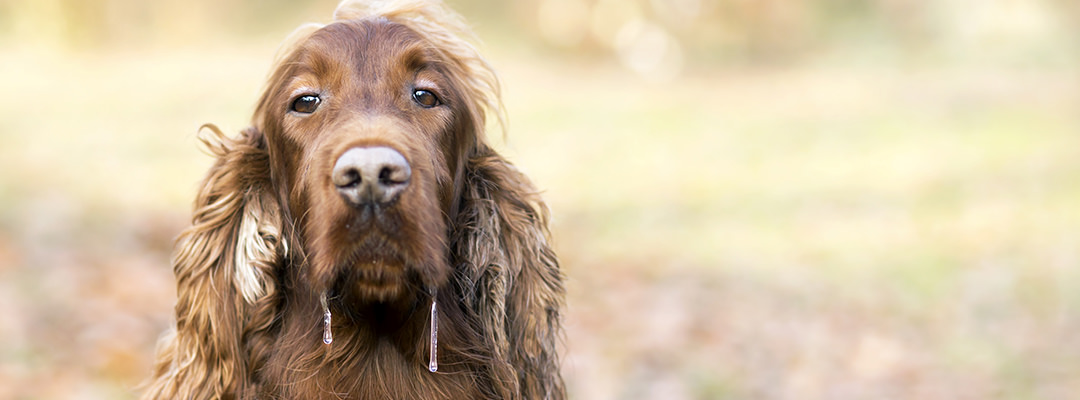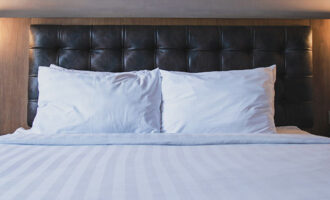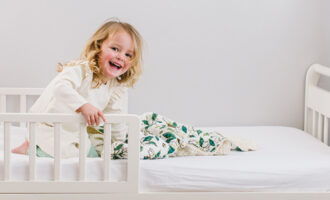Drooling while sleeping is quite normal, but it can also be a sign of a neurological issue, a sleep disorder, or another health problem. You may drool more as a result of a health incident such as a stroke, cerebral palsy, or multiple sclerosis (MS).
Drool is saliva that flows out of your mouth. Even though it is unpleasant when it occurs, most of us drool from time to time. Your swallowing reflexes, like the rest of your facial muscles, are relaxed while you sleep.
As a result, excess saliva might build up in your mouth, with some escaping through the sides. This is medically known as Sialorrhea and hypersalivation. Keep reading to find out more about the causes, risks, and the best methods you can try to prevent drooling.
What Causes Drooling While Sleeping?
Drooling is not something limited to sleeping only, even when awake, a person can drool due to infections, neurological problems, and other factors.
Excessive drooling has been linked to traumatic brain injuries, amyotrophic lateral sclerosis, Parkinson’s disease, strokes, and myasthenia gravis, according to a 2015 analysis.
On the other hand, the most common cause of drooling while sleeping is gravity. Drool builds up in your mouth as a result of your sleeping position.
While sleeping, people who sleep on their side or stomach are more likely to drool. When your lips open to breathe, the accumulated drool can begin to fall out, especially if you breathe through your mouth or have narrow sinus passages.
Complications of Excessive Drooling
Drooling could also be a side effect of some drugs you’ve taken. Excessive drooling has been linked to antipsychotic treatments (particularly clozapine) and Alzheimer’s meds. Antibiotics can cause sialorrhea for some people as well.
Dysphagia is a term that refers to any disease that makes swallowing difficult. If you’re drooling a lot, it could be a sign of something serious as Dysphagia can be caused by Parkinson’s disease, muscular dystrophy, and even some types of cancer.
Drooling could be caused by other factors as well, such as sleep apnea. If you notice any symptoms such as loud snoring, waking up in the middle of the night out of breath, or having a sore throat when you wake up in the morning in addition to night drooling, you should see a doctor.
This is because Drooling might be a sign of sleep apnea. Sleep apnea can be quite dangerous, so it’s important to have a good diagnosis if you notice the mentioned symptoms.
Additionally, drooling that is excessive can cause chapping, irritation, and skin damage. When a person is unable to swallow, saliva leaks out as drools. It can, however, pool in the throat in severe situations. When breathed, this can cause aspiration pneumonia, a lung infection.
Is Excessive Drooling Dangerous?
Excessive drooling could be caused by a medical issue or could be a sign of a serious medical issue. Saliva production can be increased by medical disorders such as acid reflux and pregnancy. Allergies, tumors, and infections of the upper respiratory tract, such as strep throat, tonsillitis, and sinusitis, can all make swallowing difficult.
Too much saliva can make people uncomfortable while eating and talking, as well as chapped lips and skin diseases. Social anxiety and low self-esteem can be caused by hypersalivation and drooling.
How to Prevent Drooling?
There are a few things that you can do to prevent drooling while sleeping. Try the following methods and see which one works best for you.
Try Home Remedies
According to the American Dental Association, saliva plays an important role in maintaining and protecting your body from infection. Therefore, try home remedies first to fix the problem, and if they do not work out, you can try the next suggestion.
To drool less at night, try biting on a lemon wedge. Many people found that citrus thins out your saliva which results in less drool on the pillows. Additionally, drinking a sufficient amount of water every day helps thin out your saliva.
Change Your Sleeping Position
One of the best ways to stop drooling is changing your sleep position to lie on your back instead of your sides and stomach. Sleeping on your back allows you to better control the flow of your saliva.
If you’re having problems sleeping on your back, it’s possible that it’s because breathing is more difficult in a new position. Paying attention to how you feel as you fall asleep could be the key to determining if you have a more serious problem.
Use a Mandibular Device
This little oral device works like magic for some people, it is a device that you place in your mouth, similar to a mouthguard, and it helps you sleep better and reduce drool and snoring. These gadgets can be purchased online or at a few specialized surgical supply retailers.
Consider Botox Injections
One of the methods that you can try is injecting botox into the salivary glands inside your mouth. These injections prevent your glands from overproducing saliva. Of course, botox is not a permanent solution, therefore, it will need to be injected again when needed.
CPAP Machine – For Sleep Apnea
If your drooling is caused by sleep apnea, you should seek medical attention. Your doctor will most probably advise you with a “continuous positive airway pressure (CPAP) machine” as it is the most commonly prescribed treatment for sleep apnea.
A CPAP machine helps you sleep better while ensuring you are safely positioned and breathing well at night.
Check with Your Doctor to See If a Surgery Is Necessary
In some situations, a doctor may advise you to have your saliva glands removed. The majority of people who have their saliva glands removed have underlying neurological disorders that are significantly more serious than merely drooling in their sleep.
Although these surgeries are often effective at reducing hypersalivation, people considering surgery for this condition should first explore other options, try home remedies and other methods, and leave surgery as the last option.
Conclusion
Drooling in your sleep could be very annoying, especially if you share your bed with your partner. However, this is an issue that most people suffer from every now and then, and in most cases, night drools are easily treated and prevented.
Did you like it?4.7/5 (23)





